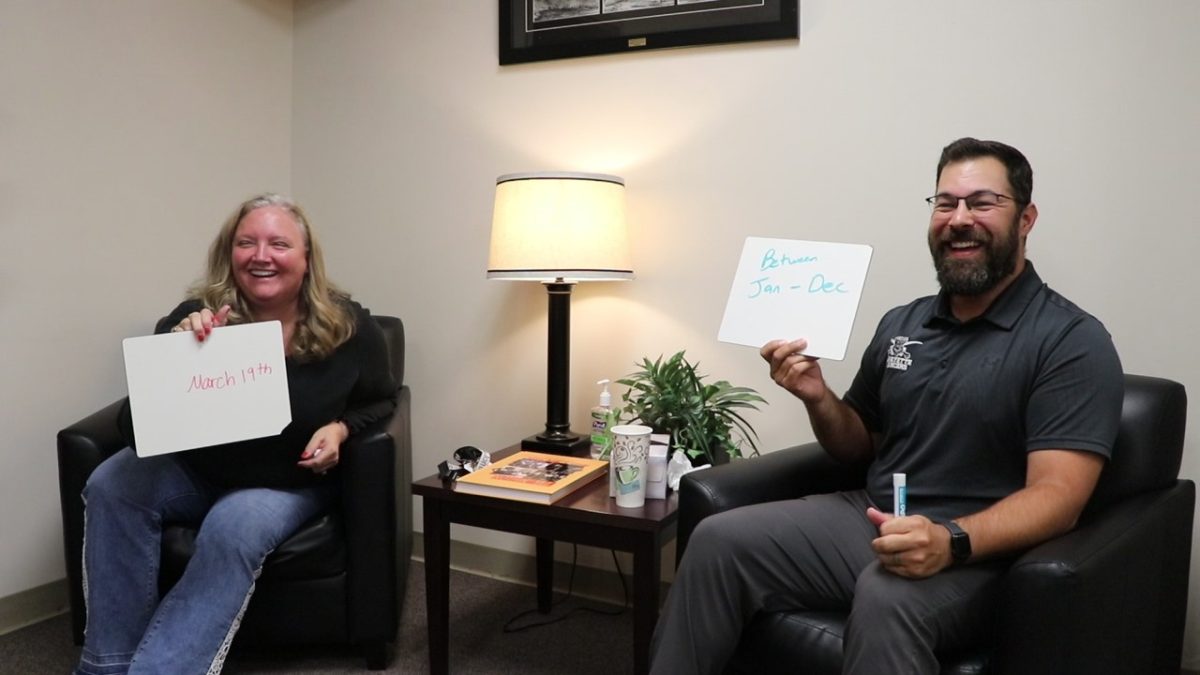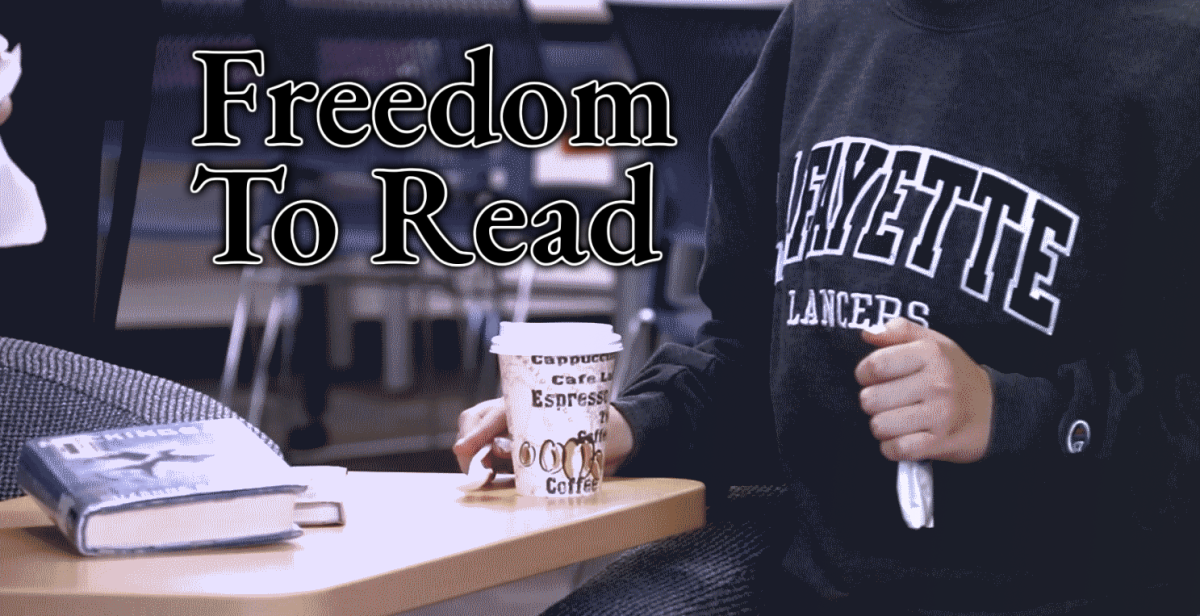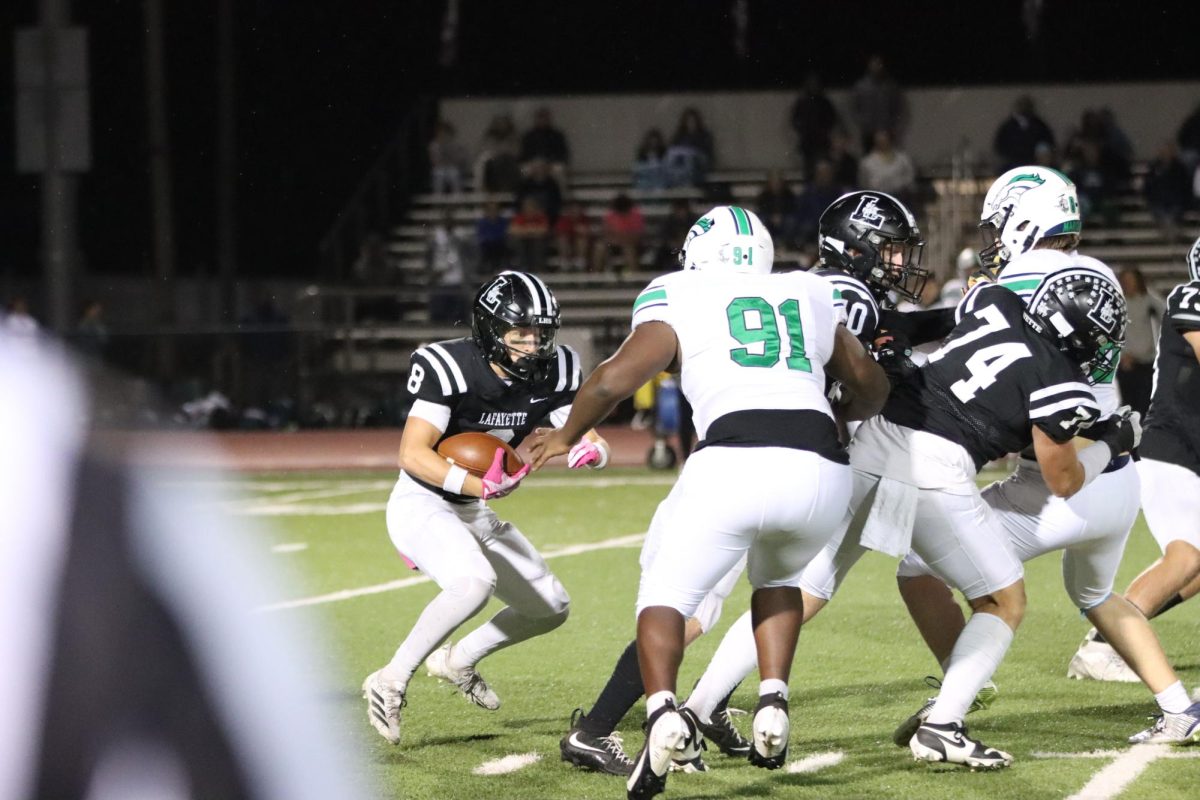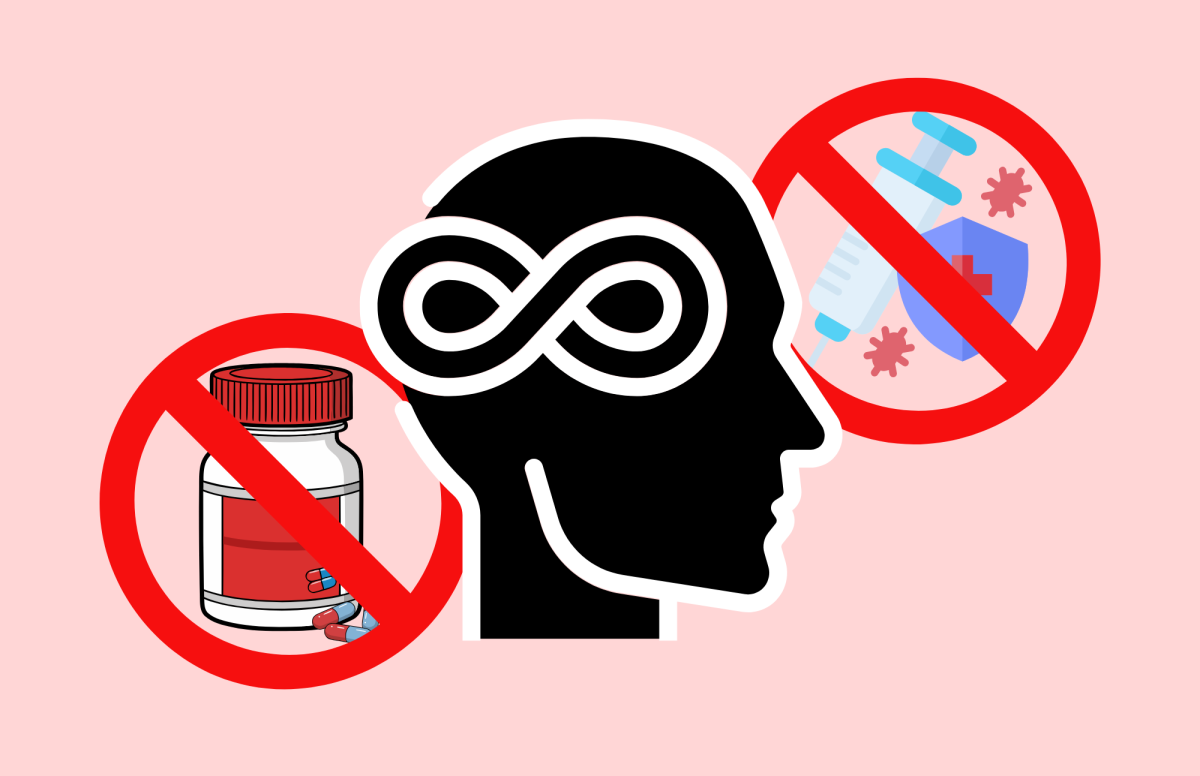OPINION: Why the death penalty is necessary
Four convicted conspirators of the Lincoln assassination, Mary Surratt, Lewis Powell, David Herold and George Atzerodt are hanged July 7, 1865.
October 16, 2018
When capital punishment is brought up as a topic for debate, whether focusing on the legality or morality of the issue, someone is bound to get offended. It’s a sensitive subject, with a variety of volatile emotions attached to it.
Here in the United States, we tend to reserve the death penalty for only the most brutal and conscienceless murderers. For instance, individuals such as Ted Bundy, Aileen Wuornos, and Albert Fish have all been handed the death sentence. These are people who have happily inflicted unspeakable evils on innocents, their only true regret being that they were caught before they could kill more. To sentence these men and women to anything less than death, such as merely giving them a life sentence in prison, is grossly disproportionate to the crimes they’ve committed.
Ted Bundy, one of America’s most notorious serial killers, confessed to 30+ murders and was suspected in as many as 100+. Bundy, in particular, is a good example of why we need capital punishment considering he was able to escape from prison twice. He would kidnap, rape, and strangle young women, often beating them brutally during the process. His last and youngest known victim was only 12 years old, however, he was suspected in the disappearances of girls as young as eight. While working as a prostitute, Aileen Wuornos shot seven men at point-blank range, each victim was shot multiple times. Albert Fish was a serial killer known as The Boogeyman. He was a child rapist and cannibal who was convicted of three murders and suspected of two more. Fish was put on trial for the Murder of Grace Budd, a 10-year-old little girl, who he had choked to death, before then proceeding to consume her entire body in a variety of different recipes over the next nine days. When he had finished he sent a letter to Budd’s mother detailing what he had done.
These kinds of people don’t deserve pity or a comfortable death. They deserve to die a slow and painful death or at the very least a quick and efficient one. Somehow, even after seeing the heinous crimes residents of death row have committed, there are still those who believe that these men and women deserve more. Critics of capital punishment will usually attack by using a combination of two main points. The legality of the death sentence and the morality of the death sentence.
Legality and morality can be countered with almost the exact same argument because they both focus on the same thing, The Eighth Amendment’s ban on “cruel and unusual punishment.”
Adversaries of the death penalty who argue the legality of the capital punishment will often cite the Eighth Amendment’s restriction of “cruel and unusual punishment,” as their primary evidence, saying the death penalty is a human rights violation.
I’ll admit the legality of the death penalty is somewhat of a slippery slope. The currently preferred execution method is lethal injection, which is usually conducted using three different drugs, Sodium thiopental or pentobarbital to render the condemned unconscious, Pancuronium bromide which paralyzes the body’s diaphragm and muscles, resulting in death by asphyxiation, and Potassium chloride which increases potassium in the the blood resulting in death by cardiac arrest. It’s a relatively quick and painless way to go.
Officially the Supreme Court has ruled that the death penalty does not violate the Eighth Amendment’s restriction of “cruel and unusual punishment.” This means capital punishment is allowed under federal, and in turn, allowed within the United States military, however, because states have the right to do so, 20 individual State Supreme Courts have ruled that capital punishment is unconstitutional within their own states.
The latest ruling was as recent as Oct. 11, 2018. The Washington Supreme Court officially declared that capital punishment was unconstitutional. Critics who criticize the moral aspect of capital punishment will say the death penalty is an inhumane practice because the prisoners suffer during execution, backing up their argument with the “cruel and unusual punishment” clause. However, individuals who say this are blatantly disregarding the time and money that went into making sure the execution process is as quick and painless as possible.
America’s current execution methods are positively lovely compared to those that we used in the past. Before we had lethal injection, we used firing squads and before firing squads, the condemned were burned at the stake. Execution methods and styles have continually gotten less painful and more efficient as time has gone on.
It’s rather pathetic that we put so much thought into making sure these people have a quick and comfortable death. The men and women on death row are there because they did unspeakable acts of violence. In 2016 the prisoners on California’s death row alone had murdered more than a 1,000 people – of these victims 229 were children, 43 were peace officers and 294 of the victims were sexually assaulted and tortured.
If anything, I believe that the people who are feeling bad for death row inmates are the immoral ones. In my opinion, those on death row should suffer the same pain their victims did. If people are genuinely concerned about making sure the execution is as quick and painless as possible, then we should just put a gun to the inmate’s temple executioner style and get it over with. It would certainly be a quick death, and even better than that, it would be less expensive than the cocktail of chemicals we have to use now.



































